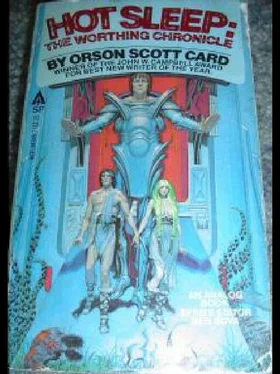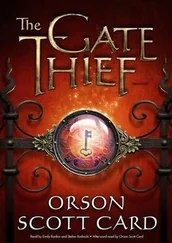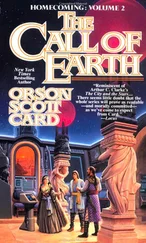Orson Card - Hot Sleep - The Worthing Chronicle
Здесь есть возможность читать онлайн «Orson Card - Hot Sleep - The Worthing Chronicle» весь текст электронной книги совершенно бесплатно (целиком полную версию без сокращений). В некоторых случаях можно слушать аудио, скачать через торрент в формате fb2 и присутствует краткое содержание. Жанр: Фантастика и фэнтези, на английском языке. Описание произведения, (предисловие) а так же отзывы посетителей доступны на портале библиотеки ЛибКат.
- Название:Hot Sleep: The Worthing Chronicle
- Автор:
- Жанр:
- Год:неизвестен
- ISBN:нет данных
- Рейтинг книги:4 / 5. Голосов: 1
-
Избранное:Добавить в избранное
- Отзывы:
-
Ваша оценка:
- 80
- 1
- 2
- 3
- 4
- 5
Hot Sleep: The Worthing Chronicle: краткое содержание, описание и аннотация
Предлагаем к чтению аннотацию, описание, краткое содержание или предисловие (зависит от того, что написал сам автор книги «Hot Sleep: The Worthing Chronicle»). Если вы не нашли необходимую информацию о книге — напишите в комментариях, мы постараемся отыскать её.
Hot Sleep: The Worthing Chronicle — читать онлайн бесплатно полную книгу (весь текст) целиком
Ниже представлен текст книги, разбитый по страницам. Система сохранения места последней прочитанной страницы, позволяет с удобством читать онлайн бесплатно книгу «Hot Sleep: The Worthing Chronicle», без необходимости каждый раз заново искать на чём Вы остановились. Поставьте закладку, и сможете в любой момент перейти на страницу, на которой закончили чтение.
Интервал:
Закладка:
When Reuben turned six, he stepped on a sharp rock and cut his bad foot. But he rejoiced — for he had felt the pain, like a little spark from miles away, but he had felt it.
When he told grandma, she didn't believe him, told him that he must get used to not having the use of his leg. But then father came and looked at Reuben with his vivid blue eyes (just like grandpa's) and said, "He's telling the truth, mother." And then grandma cried for joy and hugged him in her long, strong arms.
And because he was getting better, father began to give him more work to do. Reuben learned ropemaking and bucketmaking, and was taught all the seeds and which to plant at what day of the year and month. He learned the calendar and the names of all the weeds, but grandma never taught him how she did her trick of scratching a quill on thin strips of paper, and then say the same words from it every time. She taught no one how to do it, not even father.
When Reuben turned eight, father said he was old enough to come on the Walk.
Reuben didn't want to go, but when father decided, the children did it.
The Walk came every seventh day. Winter or summer, blizzard or wind or the hottest day of the year, they would leave at noon and walk to the northeast corner of Worthing Farm. There at the corner father would repeat the very words grandma had used. Except that when he said them, he not only made the children afraid, but he also seemed to be afraid himself. When the words were said, they walked in single file all the way around the barrier. Reuben could hardly stand to be so close to the edge. In the dark forest beyond he could imagine them, waiting. He knew them well: he had seen them in a hundred terrible dreams. Now, walking along the barrier, he felt the same sweating, freezing sensation that woke him up screaming in the night. He kept turning around to look, but they retreated out of sight before he could get a clear glimpse. He stayed as close to father as possible. Why doesn't he hurry? Reuben wondered. Doesn't he know they're watching us?
Then, after they had walked the whole border of the farm, three kilometers on a side, they came, wearily, to the Worthing stone. It was a smooth silver–colored cube, harder than any other rock, and it always gleamed in the sunlight. Etched into the stone by a power greater than any of them, because they knew they could never cut its surface, were strange marks. The same kind of marks grandma made on the paper.
JASON WORTHING
From the stars
Blue–eyed one
From this land
Jason's son
And at the Worthingstone father would say, his voice trembling with emotion, "This stone was marked by your grandpa. He set it here to protect us. As long as this stone is here, the enemies from outside Worthing Farm cannot harm us. But if any harm comes to the stone, or if any of the people of Worthing Farm leave, then our protection will end, and terrible death will come upon us all."
Then the Walk was over, and they gratefully left the barrier, walking slowly at first, then running, then bounding across the farm until they were at the dark house.
The light house, of course, they could not enter — it was grandma's, and it had the trick of flying off. Everyone had to hide in the dark house, and then there would be a terrible roaring, and then grandma and the light house were gone. Matthew told Reuben once, in whispers, behind the shed, "Father said once that she goes to grandpa."
Whenever grandma came back, she was quiet for days; but she seemed serene and happy all that time, going about her work with a smile. Father would ask her, "What's so grand that you're grinning all the time?"
But grandma only answered, "Why don't you look behind my eyes, and see?"
Whenever she said that, father turned away looking angry and ashamed. Matthew told Reuben it was because grandpa had once done terrible things to father for looking into grandma's thoughts. No one was allowed to look into grandma's thoughts.
"Will I be able to know what people think?" Reuben asked Matthew one day.
Matthew laughed. "You're too little!"
But it was about the time that Reuben turned twelve that three things happened to him. His leg was almost completely better. His chest and groin began growing hair. And he began to have flashes of what people thought.
It was then that the stranger came to Worthing Farm.
He was short, and dressed in clothing that seemed like another skin, only dark brown. Reuben, Matthew, father, and Jacob were hoeing the potatoes when he stepped from the forest. How he had got through the barrier no one knew. But he was strange, he was from outside, and he must be terribly powerful.
Reuben could not control his gift yet — but he did manage to catch glimpses. They were frightening. He saw images of great halls and huge towers, the world like a little ball in the distance, men and women in strange clothing doing strange things. He heard words and sentences that had no meaning, but that sounded vaguely wondrous, and also menacing. And he understood something else: this stranger was a man of power, a man of might, a man who was used to ruling other men.
He was everything that Reuben had learned to hate and fear from outside. And almost at the same time that Reuben realized that, father and Matthew and Jacob silently picked up their bronze–headed hoes and raised them high and advanced on the stranger.
Later, Reuben could not remember if the man had spoken or not. He only knew that the man looked coldly at them, and turned and walked back toward the barrier. Don't let him get away! Reuben silently shouted, and the others thought the same thing, because they ran to catch the man, kill him before he could get away and come back with more men with such frightening minds and such calm, confident power. But the man reached the edge, fiddled with something in his hands, and stepped easily through the barrier.
At the cleared space the men stopped, wordlessly watching as the stranger calmly walked back into the forest. When he was out of sight, they came away from the barrier, shaking with fear as they always did when the barrier was too close, too long.
They said little about the incident. Reuben assumed they didn't want to tell the women and worry them. But grandma looked at them all carefully at dinner, and asked, "What is it you're not telling me?"
And father smiled and answered, "Why don't you look behind my eyes and see?"
Grandma reached over and slapped his face, lightly. "I said tell me."
And so they told her about the stranger. When they were done, she leaped to her feet. "And you waited to mention this until now! I've raised fools for sons, but I had no idea how foolish!" And she ran out of the house. Soon came the roaring of the light house, and she was gone.
They assumed she'd be back soon, but she never came.
Reuben grew up and married his Uncle Henry's youngest daughter, Mary, and all their sons had bright blue eyes, and all of them, at puberty, could look behind each other's eyes and see each other's heart. Nothing else of importance happened to Reuben; he lived out his life within the confines of the farm, and grew old, and saw his great grandchildren born.
One day, however, when he was very, very old, he went to the barrier alone, and stood there for a very long time. He wasn't sure why he had come. But finally, in order to ease the longing, he reached out his hand into the space where the barrier had always been.
And felt nothing.
He took a step forward, and still felt nothing. And another step, and another, and he was completely through the barrier to the other side, and had felt no pain, nothing at all.
He touched a tree on the other side. It felt like any other tree. The sky looked normal enough. And the leaves crunched underfoot just the same.
Читать дальшеИнтервал:
Закладка:
Похожие книги на «Hot Sleep: The Worthing Chronicle»
Представляем Вашему вниманию похожие книги на «Hot Sleep: The Worthing Chronicle» списком для выбора. Мы отобрали схожую по названию и смыслу литературу в надежде предоставить читателям больше вариантов отыскать новые, интересные, ещё непрочитанные произведения.
Обсуждение, отзывы о книге «Hot Sleep: The Worthing Chronicle» и просто собственные мнения читателей. Оставьте ваши комментарии, напишите, что Вы думаете о произведении, его смысле или главных героях. Укажите что конкретно понравилось, а что нет, и почему Вы так считаете.







